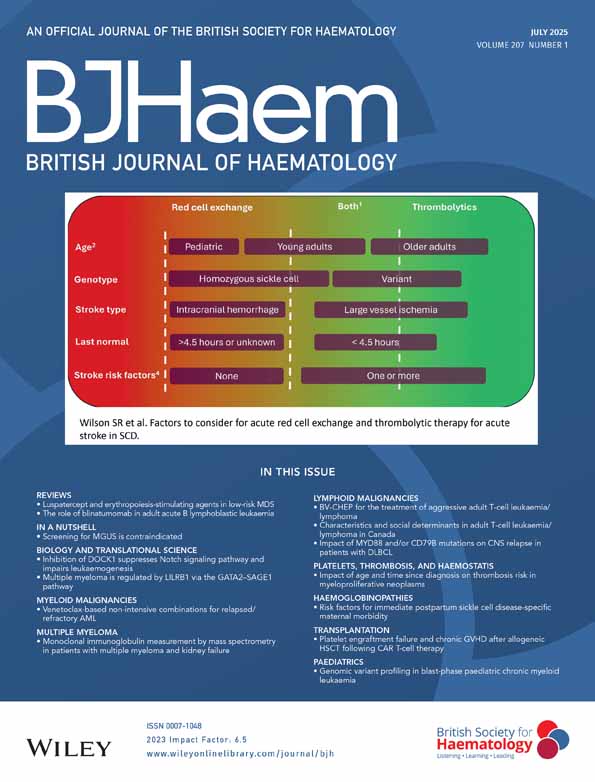Vaccination of multiple myeloma patients with idiotype-pulsed dendritic cells: immunological and clinical aspects
Abstract
Multiple myeloma (MM) is characterized by a clonal proliferation of malignant plasma cells in the bone marrow secreting a monoclonal immunoglobulin (paraprotein) with specific antigenic determinants, the idiotype (Id), which can be regarded as a tumour-associated antigen (TAA). In order to analyse the impact of a dendritic cell (DC)-based vaccine, 11 patients with advanced MM were treated with CD34 stem cell-derived dendritic cells that were pulsed with Id peptides. Subsequently, the patients received three boost immunizations every other week with a combination of Id and granulocyte–macrophage colony-stimulating factor (GM-CSF) (nine patients) or with Id peptide-pulsed dendritic cells again (two patients). The treatment was well tolerated with no side-effects. The present clinical study was a proof of concept analysis of dendritic cell-based vaccines in MM. The capacity of the dendritic cells to activate idiotype-specific T cells was verified by in vitro stimulation experiments before the vaccination therapy. Immunological effects of the Id vaccination were analysed by monitoring changes in anti-idiotype antibody titres and idiotype-specific T-cell activity. After vaccination, three out of 10 analysed patients showed increased anti-idiotype antibody serum titres, indicating the induction of an idiotype-specific humoral immune response. The idiotype-specific T-cell response analysed by ELISpot was increased in four out of 10 analysed patients after vaccination, and one patient had a decreased plasma cell infiltration in the bone marrow. In conclusion, five out of 11 patients showed a biological response after vaccination. Thus, our data indicate that immunotherapy with Id-pulsed DCs in MM patients is feasible and safe. DC generated from CD34+ progenitor cells can serve as a natural adjuvant for the induction of clinically relevant humoral and cellular idiotype-specific immune responses in patients suffering from advanced MM.




